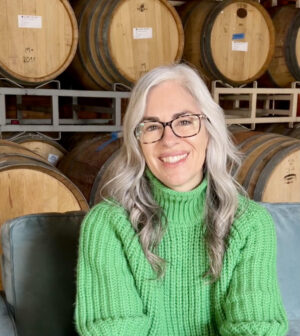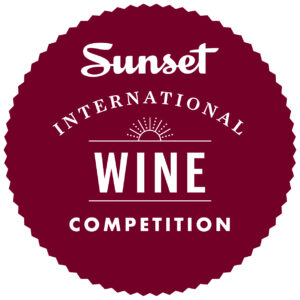The ultimate goal of wine competitions is to give each wine its due
and create enhanced marketing opportunities.
By Alexandra Russell
Many consumers see medals and scores as a shortcut to finding good wine. They trust these accolades and use the recognition to guide their retail selections. For many in the wine industry, however, wine competitions are a mystery. There’s confusion about the process — sometimes even mistrust — which can prevent a winery from entering.

But, says Debra Del Fiorentino, owner of Wine Competitions Management & Productions (WCMP), “Wine competitions are meant to bring attention to quality wines — regardless of their lineage or the reputation of the producer. We offer an unbiased assessment of wine quality.” WCMP presents more than a dozen different competitions annually, each with a unique focus based on terroir (Harvest Challenge), regionality (North Coast Wine Competition) and even gender (Women’s Wine & Spirits Competition), among others. “Our mix of competition styles means we have every opportunity to identify the best wines in a variety of ways.”
There are countless wine competitions throughout the calendar year, each with its own unique spin. But the ultimate goal is the same: give each wine its due and identify the best of the best in that setting. The next WCMP event is the Sunset International Wine Competition, which takes place May 23-25, 2023. This broad reaching contest, sponsored by Western lifestyle brand and publication Sunset, welcomes entries from across the globe and promises myriad promotional opportunities for award-winning wines.
How judging works
![[Duncan Garrett Photography]](https://wineindustryadvisor.com/wp-content/uploads/2023/04/9C1A3916-300x200.jpg)
Tasting hundreds of wines in a single day may sound like a recipe for drunken disaster, but judges are well-trained to first evaluate the wine’s color and aromas before taking only the smallest sip of wine into their mouths, then swirling, swishing (even gargling) before spitting out the sample. This lets the wine aerate on the palate to open all its notes — including the finish — without intoxicating the taster. All throughout the judging process, palate cleansers are available, including sparkling and still water, red meat, olives, bread and cheese.
Judging panels are composed of wine industry experts with different perspectives — for example, a media or press person, a winemaker, and a sommelier or retailer — but shared expertise in certain wine varieties, techniques (sparkling or fortified, for example) or regions.
![[Duncan Garrett Photography]](https://wineindustryadvisor.com/wp-content/uploads/2023/04/9C1A3979-300x200.jpg)
Wine competitions are structured so that every entry is judged on its own merits in the early rounds, with the potential to earn bronze, silver, gold (90 to 95 points), double gold (96 to 99) and platinum (a unanimous 100 points) medals. It’s only after every wine has been tasted and scored that wines are compared against one another to determine final winners.
As wines are discussed, judges decide both merit level (medals) and assign a points score. Wines deemed Best of Class (a unanimous table decision) are selected out to compete head-to-head in subsequent rounds of judging.
One frequent question concerns winemaker/judges. Del Fiorentino is quick to say that, by design, winemakers don’t often judge their own product. “We make every effort to separate a wine from its maker [at the earliest judging phase],” says Del Fiorentino. “But even when one slips through, it can be difficult for a winemaker to detect their own creation from among a tasting flight of 10 to 15 similar wines.” In subsequent judging rounds, winemakers will be exposed to their product if it has been recommended for sweepstakes by its own judging panel.
Marketing opportunities

The benefits of entering wine competitions are many, but ultimately, it comes down to marketing and awareness. In a sea of retail confusion, a shelf-talker touting a gold medal or 90+ points can help a bottle stand out.
“Awards offer great credibility to a winery,” says April Williams, co-owner and general manager of Lake Chelan Winery in Washington state. (Lake Chelan’s 2018 Wapato Point Cellars Cabernet Franc was named Best of the Best at the 2022 Sunset International Wine Competition.)
 “We were a little shocked, but not because we ever doubted the quality of our wine or winemaker,” says Williams of the win. “Instead, it’s because we are such a small name winery… from Lake Chelan, Washington, competing against big name wineries from California [and globally].”
“We were a little shocked, but not because we ever doubted the quality of our wine or winemaker,” says Williams of the win. “Instead, it’s because we are such a small name winery… from Lake Chelan, Washington, competing against big name wineries from California [and globally].”
It’s these types of surprise results that make wine competitions so valuable. “Our wine quality speaks for itself,” Williams continues. “But winning the [2022] Sunset International Wine Competition shows our customers and club members that while we are an approachable and unpretentious winery, we are making serious and top quality wines.”
By tasting wines identified only by a number, judges can sift through the hype surrounding certain wines and evaluate each one from a level playing field. “One of our top priorities is keeping the identity of wines secret,” says Del Fiorentino. “Our system of redundancies ensures no judge can know what wines they’re tasting.”
Backroom beehive
As with any competition, entries for the Sunset International Wine Competition must undergo a multi-layered process before the event begins to ensure anonymity at the judges’ tables. In all, entered wines pass through a total of five reviews to ensure they’re properly identified, match the entering wineries’ paperwork, and have been appropriately disguised.
 Anonymity begins when wines are entered into the online system by the participating wineries; each wine is automatically sorted by variety (and sometimes MSRP) and assigned a unique entry code. Wineries cannot see these numbers, and wines from the same producer are not given consecutive numbers and are not necessarily presented to the same panel of judges. Every effort is made to conceal the identity of each wine when placed in front of judges.
Anonymity begins when wines are entered into the online system by the participating wineries; each wine is automatically sorted by variety (and sometimes MSRP) and assigned a unique entry code. Wineries cannot see these numbers, and wines from the same producer are not given consecutive numbers and are not necessarily presented to the same panel of judges. Every effort is made to conceal the identity of each wine when placed in front of judges.
Compared to the usually hushed discussions in the judging room, backroom activity at a large wine competition often resembles a beehive — dozens of workers darting about, seemingly randomly, but each with their own tasks and responsibilities, ultimately shepherding the best wines through a sea of contenders to the final sweepstakes round.
What’s more, each entry requires multiple bottles to ensure against breakage or corked product. So for a competition such as Sunset International, for example, which averages more than 3,000 entries, the backroom staff needs to organize and track upwards of 12,000 individual bottles in a way that backups can be located and substituted at a moment’s notice.
Words from a judge
![Laura Ness [Duncan Garrett Photography]](https://wineindustryadvisor.com/wp-content/uploads/2023/04/9C1A4064-300x200.jpg)
Laura Ness, a wine journalist (and WIA contributor) who’s been judging wines for more than 20 years, confirms that judges never know in advance whose wines they’re tasting. “We can sometimes recognize obvious styles and varieties,” she says, “but for the most part, we’re tasting blind.”
Rather than being a hindrance, Ness considers this masking a benefit. “[Winning a medal] really validates a wine’s quality,” she says, not to mention the accompanying bragging rights and sales and marketing opportunities. What’s more, Ness continues, competitions can be a valuable tool for winemakers, as they give an honest assessment of different winemaking techniques (picking at lower Brix or using less oak or less time in barrel, for example). Even before that, doing well at a competition is a reward to the winemaking team for a job well done.
As a judge, Ness says, competitions allow her the opportunity to expand her own knowledge. “[By judging], I learn about new wines and wineries, observe industry trends, exchange thoughts on wines and wine styles with fellow judges, discover new wine varieties and regions, better recognize and understand wine faults (especially when judging with winemakers) and better appreciate the challenges winemakers face.” All of which help in her craft of studying and writing about the wine industry. “The ultimate goal of wine competitions is to continuously improve wine quality and to elevate those wineries who are demonstrating success in their quest for excellence.”
Note: The deadline to enter the 2023 Sunset International Wine Competition is May 8. Click here for more information.
_____________________________________________________________________

Alexandra Russell
Alexandra Russell was named Managing Editor of Wine Industry Advisor (WIA) in April 2022. Prior to this appointment, she’s been a freelance writer, editor and project manager; editor-in-chief for Spirited magazine; editor at NorthBay biz magazine; and, well, editor, editor, editor. She lives in Sonoma County with her human family and so many cats. She can be reached at arussell@wineindustryadvisor.com.

















